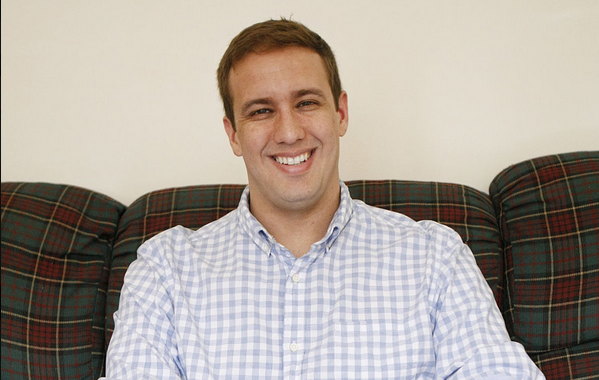Months after surgery, graduate student looks forward
March 6, 2016
Only moments from stepping out the door to go on a run at the UK Arboretum, graduate student David Scott’s doctor called him and said he had less than 10 percent function in both kidneys and he needed to rush to the hospital.
Since high school, David Scott attributed his ongoing migraines to his hard work ethic, but as he got older, the migraines became more frequent and coupled with fatigue that lasted most of the day.
In addition to teaching two philosophy classes at UK and working on his dissertation, Scott also does legal work for a friend’s start-up company and tutors students preparing to take the LSAT. While he was wrapping up classes last semester, he noticed that the fatigue and other health complications seemed like more than just the product of a stressful schedule.
His parents had just moved to South Carolina, where his family was planning to celebrate Christmas. When the symptoms had increased in November, David Scott decided to see a doctor about whether his symptoms were because of his lifestyle or some other problem.
The question he mulled over was whether he would get his tests before driving to South Carolina or wait until he got back from winter break. He said choosing to get his blood tested before he left might have saved his life.
When he received the call from his doctor, David Scott immediately went to the hospital and called his parents to let them know the little his doctor told him about his condition. Pete and Mary Ann Scott rushed to the hospital when they heard, and David Scott said the three of them learned little by little what his diagnosis would mean.
“I knew so little about kidney disease at first, and I’m normally the type who would research anything I would hear about,” David Scott said. “I didn’t want to read a thing, so there was probably about one or two days where I wasn’t sure if I was going to make it or not. I just heard, ‘Hey, I have vital organs that aren’t working anymore.’”
David Scott was rushed into surgery and had two catheters implanted to clean his body of toxins, the normal function of his kidneys that no longer worked. From there, he spent eight or nine hours a day, what he referred to as his “other full-time job,” having his blood cleaned by filtering it through a machine that serves as an artificial kidney, a process called dialysis.
He periodically changed his bags of fluids as he worked from home on his dissertation, and in a few weeks he purchased a machine that would let him sleep as it performed the task for him.
While this has allowed him to gain back much of his freedom, complications, like pinched wires if he rolls over, can set off shattering alarms that wake him up to fix the problem.
“When they told me it was kidney disease, I won’t pretend, I was a bit freaked out, but there was part of me that was hoping, ‘Hey, maybe this is a thing where they give me medicine or … I’m treated,’” he said, having heard some patients recover function after dialysis, which, to his disappointment, wasn’t his case. “I was clinging to things like that at first.”
David Scott was approved for the deceased donors list a couple of weeks ago, but the average wait time for an available transplant is between three to five years. He and his family hope his doctors will have better luck finding him a living donor, and have started the Facebook page “Donor for David” to share his story and find him a kidney.
The page has attracted a community of support, including a donor from the Philippines. Mary Ann Scott encouraged a donation in her son’s honor after he was moved by his story, but the donor was unqualified for transplant because of the distance.
Mary Ann Scott was shocked one day when a Facebook message asked her how much she would pay for a possible kidney. Caught off guard, she imagined movies her husband and son had seen, like “Hostel,” where shifty characters sold organs on the black market. She told the stranger her family wasn’t interested, and the strange occurrence has encouraged David Scott to be more lighthearted about his condition.
“There was some shock and a lot of disappointment, but after a while … a flip kind of switched and I became really pragmatic,” David Scott said. “I was still worried at the back of my mind, but you just get tired of worrying, and I just started thinking, ‘What do I need to do next?’ and started focusing on the next day, the next step in my treatment, and that kind of stuff.”
End Stage Renal Disease has disrupted David Scott’s life in ways that he feared would be permanent, but his outlook has drastically improved now that he can do dialysis from home and work on his dissertation as he searches for a kidney.


























































































































































